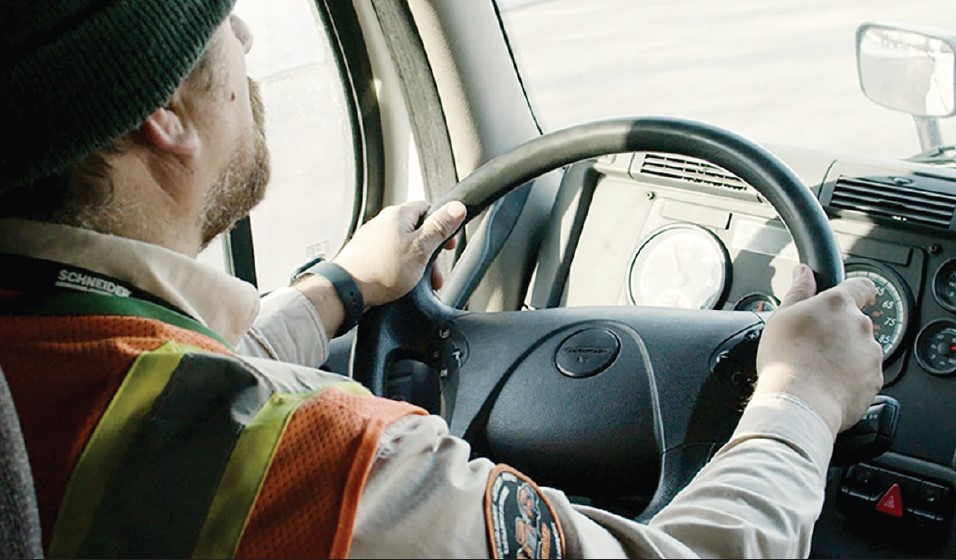Teamsters L.U. 456 Hold Session on Drug Testing Protocols for CDL Employers, Owner/Operators
By GEORGE DRAPEAU III – January 25, 2024
ELMSFORD, NY—Teamsters Local 456 held an information session on Jan. 11 at the union’s headquarters here, entitled “Drug Testing Protocols & Procedures,” for companies with trucking operations that employ any worker using a commercial driver’s license (CDL) as well as for those who are owner/operators of commercial motor vehicles.
The session was expected to be the first of several informational meetings for the industry and companies that are signatory members of the Construction Industry Council prior to the implementation of the final federal rules which go into effect on Nov. 18, 2024. The final rule is designed to help keep unsafe drivers off the road by increasing compliance with the CMV driving prohibition.
A lively Q&A session answered questions and clarified matters pertaining to compliance requirements, random drug polling of drivers, and sampling that drivers will be required to take for employment through the union.

“Employers are responsible for developing and implementing successful DOT workplace drug and alcohol programs that have as their components clear policies, provisions for education and training, drug and alcohol testing, and when needed, referral for evaluation and treatment,” explained Roger G. Taranto, recording secretary of Teamsters L.U. 456, who led the session.
Clearinghouse Explained The Federal Motor Carrier Safety Administration (FMCSA) published a registry that began in November 2021 requiring employers to research violations for a positive test result. “There has been considerable confusion about the roles and responsibilities of employers,” added Teamster 456 President Louis Picani who welcomed 25 attendees at the program. “Our purpose here is to help clear up any confusion and to help you get the answers you need.”
FMCSA is amending its regulations to establish requirements for State Driver’s Licensing Agencies (SDLAs) to access and use information obtained through the Drug and Alcohol Clearinghouse (DACH or Clearinghouse), an FMCSA-administered database containing driver specific controlled substance (drug) and alcohol records.
The Clearinghouse is designed to improve safety on roadways by ensuring that CDL drivers who violate FMCSA’s drug and alcohol rules and regulations do not perform safety-sensitive functions, such as operating a commercial motor vehicle, until they complete the required return-to-duty process.
Several professionals in the field affiliated with Teamsters L.U. 456–Executive Director Michael Popp of the Lower Hudson Valley E.A.P. and James Sayegh, M.D., of Park Avenue Family Medicine—participated in the discussion clarifying questions and issues that were raised.
Among them were the timing of testing, the percentage of drivers required to be tested, associated costs for testing and treatment, and the steps required for return to duty if a positive test occurs. Among the questions raised regarded compliance with the regulations, and if owner-operators are required to register in and use the Clearinghouse. For example, owner-operators who operate under their own authority/USDOT Number must register as an employer. For Owner-operators who operate under another motor carrier’s USDOT Number should register in the Clearinghouse as a driver.
Controlled Substances
The regulations require five-panel testing for the following classes of substances:
- Marijuana
- Cocaine
- Opiates—opium and codeine derivatives
- Amphetamines and methamphetamines
- Phencyclidine – PCP
For information about future information sessions, contact Teamsters L.U. 456 at 914-592- 9500 or the Construction Industry Council at 914-631-6070, or www.cicbca.org.
For more information, visit www.transportation.gov/odapc/part-40-dot-5-panel-notice/ More information can be obtained at www.clearinghouse.fmcsa.dot.gov/learn. Information on treatment programs and options for employees in need are available at www.lowerhudsonvalleyeap.com. Information is also available by contacting Gian Marshall, Drug and Alcohol Programs Division, Federal Motor Carrier Safety Administration, 1200 New Jersey Avenue SE, Washington, DC 20590-0001, [email protected], (202) 366-0928. For questions on viewing material in the docket, contact Dockets Operations, (202) 366-9826.
